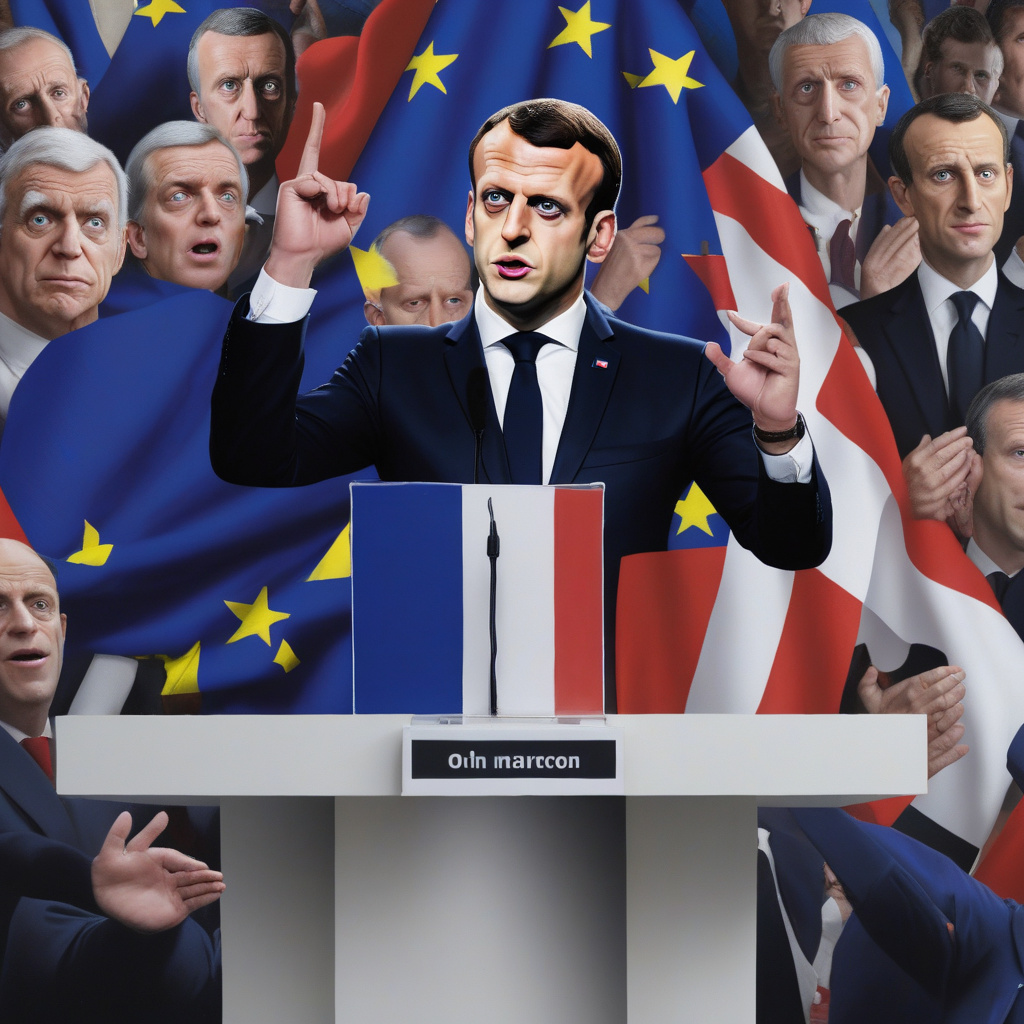French President Emmanuel Macron’s recent stance on the EU’s response to US tech companies following Donald Trump’s tariff threats highlights a significant shift in international relations. Macron’s call for the EU to target the US digital sector underscores the growing tensions surrounding European technology regulations and digital taxes.
Trump’s ongoing criticism of the EU’s Digital Services Act and Digital Markets Act, labeling them as discriminatory against American companies, has fueled the need for a robust response from the EU. Macron’s emphasis on not ruling out retaliation is indicative of a potential trade conflict looming on the horizon.
The disparity in trade deficits between the EU and the US, particularly in services versus goods like cars and pharmaceuticals, adds fuel to the fire. Macron’s dissatisfaction with the current EU-US trade deal reflects broader sentiments within Europe about the need for fair negotiations and equitable agreements.
The upcoming discussions between Macron and German Chancellor Friedrich Merz will likely shape the EU’s approach to addressing these trade and tech-related challenges. The outcome of these talks could have far-reaching implications for transatlantic trade relations and the regulatory landscape for tech companies on both sides of the Atlantic.
As the debate unfolds, it is essential for stakeholders in the IT and technology sectors to closely monitor these developments. The potential ramifications of escalating tensions between the EU and the US could impact market dynamics, trade policies, and regulatory frameworks governing the digital economy.
In a rapidly evolving global landscape where technology plays a pivotal role in shaping economies and societies, finding a balance between fostering innovation and ensuring fair competition is paramount. Macron’s call for EU action against US tech giants underscores the complex interplay between geopolitics, trade dynamics, and regulatory oversight in the digital age.
Ultimately, how the EU navigates this intricate web of challenges will not only shape the future of transatlantic trade but also set precedents for global governance in the tech sector. As Macron and other European leaders deliberate on the best course of action, the tech industry braces for potential disruptions and uncertainties that could redefine the competitive landscape in the digital realm.
In conclusion, Macron’s push for EU action against US tech companies marks a significant chapter in the ongoing saga of international trade relations. The outcomes of these deliberations will reverberate across the tech industry, influencing market trends, regulatory environments, and the broader landscape of global commerce. Stay tuned as this narrative unfolds, shaping the contours of a new era in transatlantic trade and technology governance.

